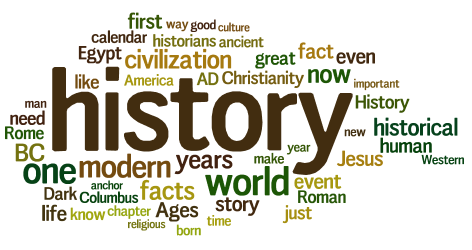
- Identity and Cultural Heritage: History helps individuals
and communities understand their identity and cultural heritage. It explores
the stories, traditions, and achievements of different societies and
civilizations. By studying history, students can connect with their roots,
develop a sense of belonging, and appreciate the diversity of human
experiences.
- Critical Thinking and Analysis: History encourages critical
thinking and analytical skills. It requires students to examine and interpret
primary and secondary sources, evaluate evidence, and construct arguments based
on historical facts and perspectives. Studying history enhances skills such as
critical reading, research, source evaluation, and logical reasoning.
- Lessons for the Present and Future: History provides
valuable lessons and insights for the present and future. By examining past
events and their causes and consequences, students can gain a better
understanding of contemporary issues and challenges. History offers
perspectives on political, social, and economic systems, as well as the
complexities of human behavior, which can inform decision-making and contribute
to a more informed and responsible citizenship.
- Empathy and Perspective-Taking: History encourages empathy
and perspective-taking by exploring the experiences and perspectives of people
from different times and cultures. It fosters an understanding of different
viewpoints and promotes tolerance, cultural sensitivity, and appreciation for
diverse perspectives. By studying history, students develop empathy and the
ability to consider multiple interpretations of events.
- Citizenship and Democracy: History plays a crucial role in
educating citizens in democratic societies. It provides knowledge of the past
struggles and achievements in areas such as civil rights, democracy, and social
justice. Understanding historical events and the foundations of democratic
systems empowers citizens to engage in informed civic participation, uphold
democratic values, and contribute to the improvement of society.
- Continuity and Change: History helps students recognize
patterns, continuity, and change over time. It highlights the factors that have
shaped societies and civilizations and allows students to make connections
between past and present. Understanding historical processes and
transformations contributes to a deeper understanding of societal, cultural,
and technological changes.
In summary, history education provides students with an
understanding of the past, develops critical thinking skills, and fosters
empathy, citizenship, and cultural appreciation. Studying history allows
individuals to connect with their heritage, learn from past mistakes and
successes, and contribute to a more informed and responsible society.

